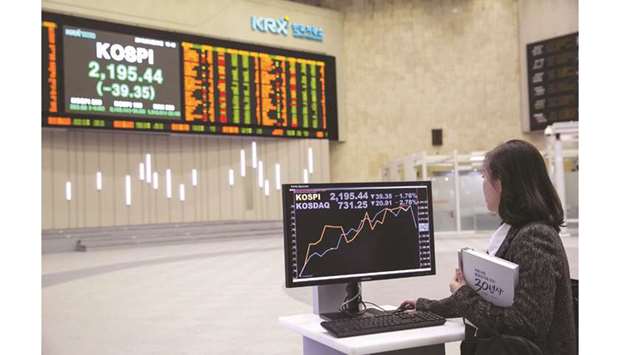South Korean authorities should take steps to prevent listed companies from treating minority shareholders unfairly in a bid to boost investor confidence in the nation’s stocks and increase their valuation, according to Dalton Investments LLC.
In a letter sent to the Korean government on December 3, James Lim, senior analyst at the $3.2bn California-based hedge fund, said regulators could impose on a company’s board of directors an obligation to monitor “proportional interests,” which will protect non-controlling shareholders’ interest.
Authorities should also push companies to buy back more shares and make investments more efficient, Lim wrote.
The letter came after Michael Burry a few months ago said certain management behaviours of Korean corporations have damped sentiment among international investors.
Billionaire hedge fund manager Paul Singer has also called for more accountability at the business groups that dominate Asia’s fourth-largest economy.
Korea’s capital market has failed to even draw many domestic investors, as the tally of outside money managed by funds there is “so small” relative to the economy – about 33% of Korea’s GDP – whereas global funds’ total assets account for 66% of the world’s output, Lim said.
The analyst also said that local investors favor private funds over public funds, especially those invested in Korean equities, despite the fact that listed stocks are so cheap.
The primary reason is the perennial discount on Korean shares that is unlikely to end anytime soon, he said, adding that public companies in Korea often prioritise the interests of their controlling shareholders and return “extremely low” capital to shareholders.
Korean stocks are suffering from a depressed valuation due to poor corporate governance and geopolitical risks from North Korea.
The benchmark Kospi index has been trading near its its book value for the past decade.
Burry, the chief executive officer at Scion Asset Management who was featured at the movie of “Big Short”, used Hyundai Motor Co’s purchase of land from state-run Korea Electric Power Co as an example of a “setback” in corporate governance in Korea. “Actions like that hurt foreign sentiment,” Burry said.
Kospi index’s return on equity is forecast to be 4.8% for 2019, the lowest since 2002, lagging behind the MSCI Asia Pacific Index’s 11.7% and the S&P 500 Index’s 19.1%. The Kospi’s payout ratio is 22%, compared with the 39% of its Asian peers.
Dalton called on the Korean national assembly to devise better rules requiring a board director to monitor whether a company meets minority shareholder’s interests.
Korea’s benchmark Kospi has risen about 1% this year compared with the MSCI All-Country World Index’s almost 20% climb as export demand was eroded by ongoing trade tensions between the US and China.
“To promote the listed equity markets and public equity funds, the government and the National Assembly must demonstrate their strong willingness to normalise the Korean stock market and fully explain the rationale so that the market can build up trust in the Korean public stock market,” Dalton said.

A member of the media looks at a computer monitor displaying the Korea Composite Stock Price Index (KOSPI) and the Korean Securities Dealers Automated Quotations (KOSDAQ) figures at the Korea Exchange (KRX) in Seoul (file). Kospi index’s return on equity is forecast to be 4.8% for 2019, the lowest since 2002, lagging behind the MSCI Asia Pacific Index’s 11.7% and the S&P 500 Index’s 19.1%.
